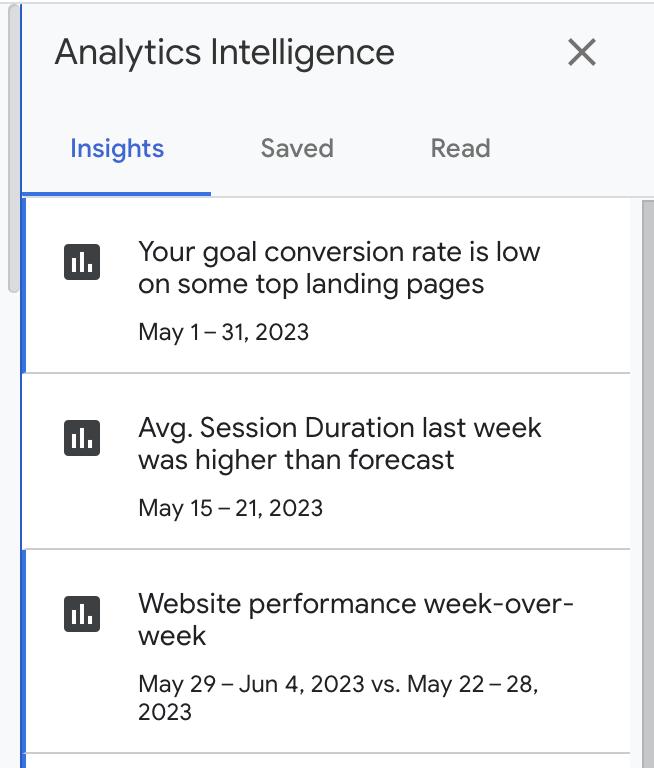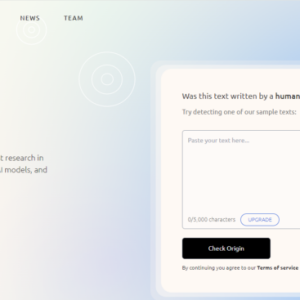Artificial Intelligence (AI) has revolutionized various industries, and the field of business is no exception. In today’s fast-paced and competitive market, companies are constantly seeking innovative ways to improve efficiency, make informed decisions, and gain a competitive edge. This is where AI comes in, offering businesses the opportunity to harness cutting-edge technology to streamline operations, enhance customer experiences, and drive growth. At our agencies, we have fully embraced the power of AI and integrated it into our daily operations, enabling us to deliver exceptional results to our clients and stay ahead in this rapidly evolving digital landscape. In this article, we will explore how we utilize AI at our agencies to optimize processes, improve decision-making, and ultimately, achieve business success.
- Free AI Content Generator: Free Tools and Trials to Generate Articles
- ChatGPT for Real Estate: 8 Great Tactics to Increase Engagement & Sales
- Designs.ai Review: Create Amazing Visuals to Wow Your Audience!
- 12 Best Generative AI Tools That Will Change How You Work Forever
- 10 Best Writing Assistant Software Tools to Help You Grow Fast
Now, more than ever before, the integration of AI in business is a game-changer. From AI business solutions to the use of artificial intelligence in business operations, AI is increasingly becoming a critical component of successful business strategies.
You are viewing: AI in Business: How We Use Artificial Intelligence at Our Agencies
In this post, we’re going to look at six ways that marketing experts Neil Patel (NP Digital) and Eric Siu (Single Grain) are using AI in their companies.
And none of the examples they share are going to be about creating text-based content, video-based content ir image-based content for social media, because everyone already knows about that stuff.
Let’s get started!
AI in Analytics: Optimizing Marketing Spend
How many people log into analytics on a daily basis and take action based on that data?
According to Neil, most companies they’ve dealt with at NP Digital do not. He emphasizes the importance of AI in business analytics for this reason. He notes that a significant proportion of marketing spend isn’t on personnel, but on ad dollars for platforms like Google and Facebook – and you’re talking about hundreds of billions of dollars.
So here’s where the use of AI for business efficiency comes in at his company: They use AI to analyze marketing efforts in real time. As he says, it’s not perfect, but it creates some insights.
Despite having personnel trained in analytics, many companies find that they aren’t taking daily action on the insights gained:

But AI can automate this process, and do it much faster and more efficiently. And then from there, Neil’s team looks at it on a daily basis, which allows them to refine their strategies, reduce wastage and reallocate resources effectively.
This, in turn, can lead to considerable cost savings, especially for businesses spending large sums on advertising platforms.
Related Content: Best Analytics Agency: Top 8 Choices for 2023
AI for Note-Taking and Sentiment Analysis
There are a lot of note-taking AI tools out there, like fireflies.ai:

But what Eric and his team do is use a conversational intelligence tool that they already pay for called Gong.
See more : Midjourney Review: Is This The Best AI Image Generator Around?
Gong is a “revenue intelligence platform for B2B sales teams. It helps you close more deals by shining the light on your team’s sales conversations. It records, transcribes, and analyzes all sales calls so you can drive sales effectiveness across your entire team.”

Although Gong is usually used for sales, Eric also uses it for coaching client services to gauge client sentiment after meetings and calls. After scoring the sentiment of each client call and noting the action items afterwards, they plug the sentiment score into a spreadsheet and monitor it every week.
Each client call is scored on a scale from one to 10:
- If it’s above a nine, then it’s considered a good score.
- If it’s a seven or eight, it’s considered a neutral score.
- If it’s a seven or below, it’s considered a pretty bad score.
In the event that the calls score a seven or below for three weeks in a row, it’s the client services rep’s job to look into it. And that allows the team to nip the issue in the bud for their clients and solve problems much faster.
Related Content: 20 AI Tools to Scale Your Marketing and Improve Productivity
AI in Creative Campaigns
Another thing that Neil and his company do is use AI when creating creative campaigns. They hired a company called Bacon and Eggs to create a video of people who look like him (i.e. wearing a bald cap) in an office. They filmed tons of different variations of it.
Businesses generally create explainer videos or e-commerce brands make funny videos, but people don’t take advantage of video as much for B2B. It works in all segments, you just have to get super creative. Just think of Squatty Potty and what the Harmon brothers did there.
That’s the type of videos that a lot of companies are creating.
But when Neil’s team creates these videos, or when they hire other companies who specialize in that, they typically go through three to six different variations so they can slice and dice and have tons of options for the creative campaigns. In other words, they’ll create one or two variations and then use AI to come up with more variations from those.
For example, you can change the background, change the scenery, make it seem like you’re in Sao Paulo, Brazil instead of New York, USA. And you can do a lot of little things like that with AI.
This novel AI application in business allows companies to tailor their messaging and appearance for different audiences without extensive manual input, which saves a ton of time and money on the creative and the production side of marketing.
Related Content: 31 Best Digital Marketing Campaigns You Can Swipe
AI for CRO Insights and Customer Understanding
Eric describes leveraging Microsoft Clarity to provide Conversion Rate Optimization (CRO) insights for their clients. Microsoft Clarity is a free competitor to a tool like a Hot Jar:

You install it as a Pixel, and it’ll come up with insights and which you can immediately go execute on. It basically strategizes for you while pointing out different areas of improvement, like heat mapping. You can see scrolling and rage clicks, etc..

The other thing his team does is when they have leads that come into the Single Grain site, they add three insights for their salespeople, including a quick overview of what the company does.
See more : Best About Us Generator? 9 Awesome AI Powered Tools
For instance, an e-commerce company came to them and were asking for Pinterest Ads specifically. They used OpenAI’s API and, interestingly, the three recommendations that were put in were all tied to Pinterest Ads. Did it read what the client was interested in? Who knows, but it changes the conversation more from “Just come and buy our stuff” and edges it more towards the consultative selling piece.
You may also like: Best AI Marketing Agency: Top 5 Choices for 2023
AI for SEO Opportunities
Another strategy that Neil has found to be effective involves using Google Search Console, a tool many of you likely already use. They extract data from this platform via their API to identify new keywords. Given the sheer volume of keywords to manually sift through, this automated approach proves highly efficient.
If they spot keywords with a relatively high Cost-Per-Click (CPC) – in the digital marketing space, anything over $5 is considered high – these keywords are flagged. Each keyword is then assessed via link tools to determine how many backlinks associated websites have. If a site has fewer than a hundred backlinks – which for them is a really small amount – they find it relatively easy to outperform these sites.
Armed with this information, the flagged keywords are added to a queue and sent to one of their team members. They’re then tasked with deciding whether or not to create content around this subject or target this keyword.
The reason they look at multiple factors before making this decision is:
- To ensure that the keyword is achievable enough to rank for.
- Because a high CPC typically indicates that the keyword or phrase is valuable and can generate a significant number of conversions.
It’s worth noting that terms with low CPCs often don’t convert as well, or while they could potentially convert well, the related product usually isn’t expensive. Take toothpaste, for instance. It’s highly unlikely that someone would invest heavily in CPC for a product that sells for only a dollar. It’s all relative.
In essence, this strategy allows them to uncover SEO gold mines. They’re constantly on the lookout for up-and-coming keywords that convert well. It’s surprising to see that many people aren’t targeting these keywords in their SEO strategies but are doing so in their paid campaigns.
Related Content: ChatGPT Alternative: Why Bard Is Our New Choice
AI for Content Optimization
The last example here of how they’re using AI at their companies is sort of related to content creation (or, rather, content optimization). Eric uses AI to identify decaying content.
Content decay is content that’s been declining in traffic over the past twelve months. This is a good indication of whether or not your content is decaying:
By highlighting pages with declining traffic, AI helps companies understand when and where they need to upgrade their content. This is a perfect example of business process automation with AI, facilitating quick decision-making and enhancing SEO.
Related Content: What Is Content Decay and How It Affects Your SEO
Final Thoughts on Using AI for Business
Most people look at AI as just a content creation tool, but you can use it to do so much more.
From aiding in analytics and sentiment analysis to enhancing creative campaigns and content optimization, AI is transforming how people run their companies.
Both small businesses and larger corporations can leverage these AI business solutions to streamline their operations, maximize marketing efficiency, and effectively engage with their customers.
If you’re ready to level up your business, Single Grain’s AI marketing experts can help!👇
That’s a wrap on “AI in Business: How We Use Artificial Intelligence at Our Agencies” We hope you’ve found a trove of useful insights and fresh perspectives. Your opinions and ideas matter to us—join the conversation below and share your take! Hungry for more tech insights? Dive into our diverse collection of articles where innovation meets practicality. Discover More AI Softwares.
Stay in the loop with the latest in AI and tech – your journey into the digital future continues at hiddenshard.com.
#Business #Artificial #Intelligence #Agencies
Source: https://hiddenshard.com
Category: AI





